do you need to heal your relationship to reading?
a story from my life plus three questions you can ask yourself
Hi friend,
Like Kathleen Kelly, I like to start my essays to you as if we’re already in the midst of a riveting conversation over a cup of coffee or a plate of olives and cheese.
I’ve been thinking about how healing a close reading practice has been in my life.
And then I was thinking about how it took me a long time to realize how healing it is.
And then I was thinking about the many students I had over the years who, in their most open moments in our writing classes, would share how unexpectedly lovely the reading assignments for our class had been.
“My high school mostly just assigned books and expected us to read them alone, so I never really did the reading actually. I kinda wish I had.”
“I’ve never gotten feedback on the way I read before. Only on the way I write. I like it.”
“I thought I hated reading. But I don’t think I do.”
Their statements and declarations about reading—and how they were changing their minds about reading—were like candy. I loved to sit in those moments with them and often invited them to savor the realization that a whole world was open to them that they had no idea they would enjoy exploring.
(One of the best moments ever was watching a room of sophomore English students fall in love with Anthony Bourdain thanks to an excerpt from his book No Reservations. Who said all assigned readings have to be stuffy!?)
Do you find yourself skimming rather than savoring?
Do you wish you could see in classic novels what makes them so classic?
Do you ever pick up a book to start reading…and then realize, a half hour later, that you’re holding your phone instead?
These may be signs that there is a little bit of healing work to do toward your relationship with the written word.
Maybe you’re in a reading slump and no matter what book you pick up, you feel stuck and bored.
Maybe you find your beloved bookstore overwhelming or, perhaps worse, wholly underwhelming — and so you don’t even want to browse around anymore.
Maybe you recently finished a book everyone loved, but you had to force yourself to finish it and now you’re just pissed at every book.
These are just a few more signs that something may be amiss between you and reading.
When I completed my literature PhD, my soul reached grasping hands for East of Eden by John Steinbeck, a book I had wanted to read for over 10 years and had never had the time to read. I inhaled it over the next 6 weeks; every word felt like a gift.
It was my first real, true closely reading experience that I took on all by myself, no dissertation chapter to write about it, no professor to impress, no reading quiz to take or create for others.
Years later, I still think of what it felt like to turn the cover and read that first paragraph. I sighed with recognition at the words on the page, even though I’d never read the novel before:
oh, i needed this.
here you are.
this is the book I’ve been longing for.
For years, I’d been in the throes of Dissertation Land. If you’ve never journeyed there, you might be able to imagine it: one project defining your entire life from wake to sleep, and then throughout the night, as well. My mind had been making bizarre metaphors of confusion, lostness, boredom, and anxiety for months as I slept; I would wake up from vibrant stress dreams positively dreading my morning writing time.
I started to hide in reading.
Because reading still felt productive, I could justify it.
It felt meaningful to the project.
By that point, I’d read everything I could read for my dissertation chapters and I was re-reading well-tread territory as a way to hide from my writing.
But I could hide in the reading and the re-reading.
And for six months, I hid in this space. I thought it was only hurting my relationship to writing.
After all, I was becoming more resentful and tired every time I sat down to write. The blinking cursor was a regular image in my stress dreams; I’d wake up in a cold sweat with a burning ache in my chest that somehow my entire project had been deleted by accident or corrupted on a hard drive somewhere in Antarctica. (How it got there was a Christopher Nolan-esque fantasy that only the jitteriest parts of my brain could imagine.)
But reading felt great. I could justify spending 4-5 hours reading my dissertation materials. It was still “work time” toward my final goal.
I could justify a whole day in the library, spent “just looking around at books,” or “just looking for inspiration.”
What I didn’t realize was that using reading and re-reading as a hiding place was damaging my relationship to reading itself.
It was making it a churn; a treadmill.
I was going nowhere.
I was reading closely, yes, but I had already worked hard to garner good notes and find my footing in the research. I already knew how to closely reading. Now, I was using reading as an excuse to not make other kinds of progress in my work. I was using reading as an excuse to stay stuck and to not finish my project — when a love for reading, and the personal reflections and growth it has inspired in my life, had been the entire reason I started grad school in the first place.
What is perhaps worst of all: I was definitely not reading anything “for fun.”
I went to the bookstore once or twice a month and bought myself little stacks of “what I’ll read for fun when my dissertation is complete.” And then I’d bring the stacks home, re-read old academic articles and the well-loved pages of my dissertation novels, and I’d start to resent it all.
I was holding my love for reading hostage under the guise of comfort.
I was reading, but I was not reading.
I was hiding.
I was putting off the opportunity to read for fun.
I was not writing.
I was not evolving in my thinking.
I was stagnant—and as soon as I realized that, I told myself it was a cocoon.
Maybe part of it was.
But mostly, looking back, I’d dug myself a cozy little hole and I was making a home down in that stagnant place where I couldn’t grow.
Sometimes we turn reading into something it doesn’t need to be.
Or at least into something it doesn’t need to be forever.
I had turned reading into a hidey hole where I stayed cozy in my assumptions about myself, my past, my future, my present.
I re-read challenging, bizarre modernist texts—but I’d read them before and they were no longer the taffy pull for the mind that I loved so much. They were, in some ways, becoming rote. Little warning bells rang in my mind and I ignored them all.
Sometimes, we turn reading into a treadmill that keeps us in one place and in one way of thinking.
We forget it could be a spark we follow into a whole new direction.
We forget that it can be a mirror or a window; that it can teach us and expand us, even as it warms and comforts us.
Reading is wonderful, that way. It is the invitation and the arrival. It is the leaving and the returning. It is sometimes the dreaded mirror illuminating us too closely; other times, a wide window holding only unknown vistas.
It is a way to grow. To change. To evolve. To think.
Edith Wharton once wrote, “Set wide the window, let me drink the day.”
When I cracked the cover on East of Eden, I felt the window set wide. The days ahead of me, with this story, quenched a thirst I didn’t know I’d been ignoring for years.
It feels so good to read. Especially when that readerly part of yourself has been lost for a bit, and you find the story that can bring her home to you once more.
Maybe you’ve felt a little seen or a little understood as you read this. If so, I get it. The stuckness. The coziness of that stuckness. The desire to stretch out of it anyway.
Here are three questions I believe you can try investigating with yourself this week to help you figure out where you’re at in your current relationship to reading — and start to heal, if you need to.
What’s your dominant feeling while reading lately? Are you restless? Bored? Enraged? Are you joyful? Calm? Energized?
What are you reading?
Are different texts inspiring different sensations from you? Or are you feeling the same way no matter what you try to read?
Notice what you’re feeling in a neutral way. Feeling restless isn’t “bad” and feeling energized isn’t “good.” These feelings are just information you can collect about your current reading experience. They can help you figure out what’s going on.
What’s the best you ever felt while reading? Was it when you were seven years old, reading Junie B. Jones or Matilda for the first time? Was it during a literature class when you first encountered Hamlet or Dickens or James Baldwin?
What made that reading experience special?
Who were you when you read that book or poem or story? Do you long to be that version of yourself again? Why or why not?
What is one belief you have about reading?
Write it down.
Now read it out loud. Does it still feel true? Adapt it, as needed. Adjust the statement so it feels real and true in your mouth.
Share that belief with someone you love who knows you well. A friend, a partner, your family. Do they share the belief? Do they differ? How so?
‘til next time, happy reading! (or, at least, self-aware reading?)
If you enjoyed today’s essay and want to make a one-time contribution, you can buy me a coffee. Or you can become a paid subscriber at any of the rates below —
$15 per year
Get a full year of Closely Reading for $15. Available to all readers, all the time.$25 per year
Get a full year of Closely Reading for $25. Available to all readers, all the time.$50 per year
Get a full year of Closely Reading for $50. Available to all readers, all the time.$100 per year
Founding member status grants you the title “Patron of Literary Arts” and is the highest paid tier available.





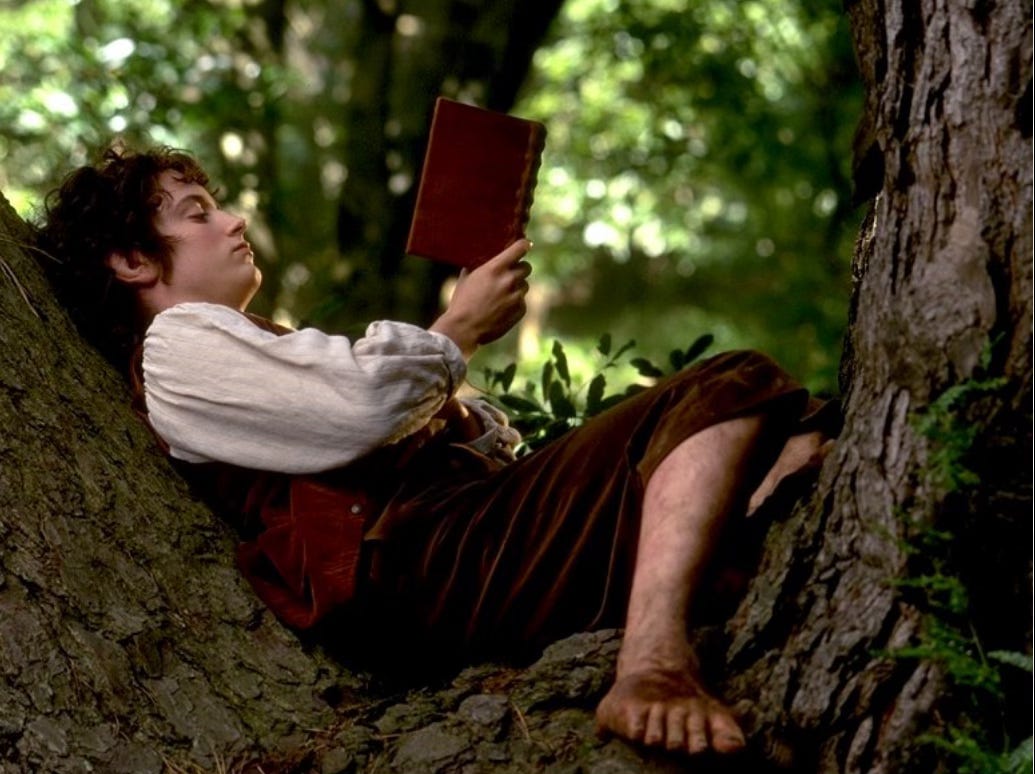
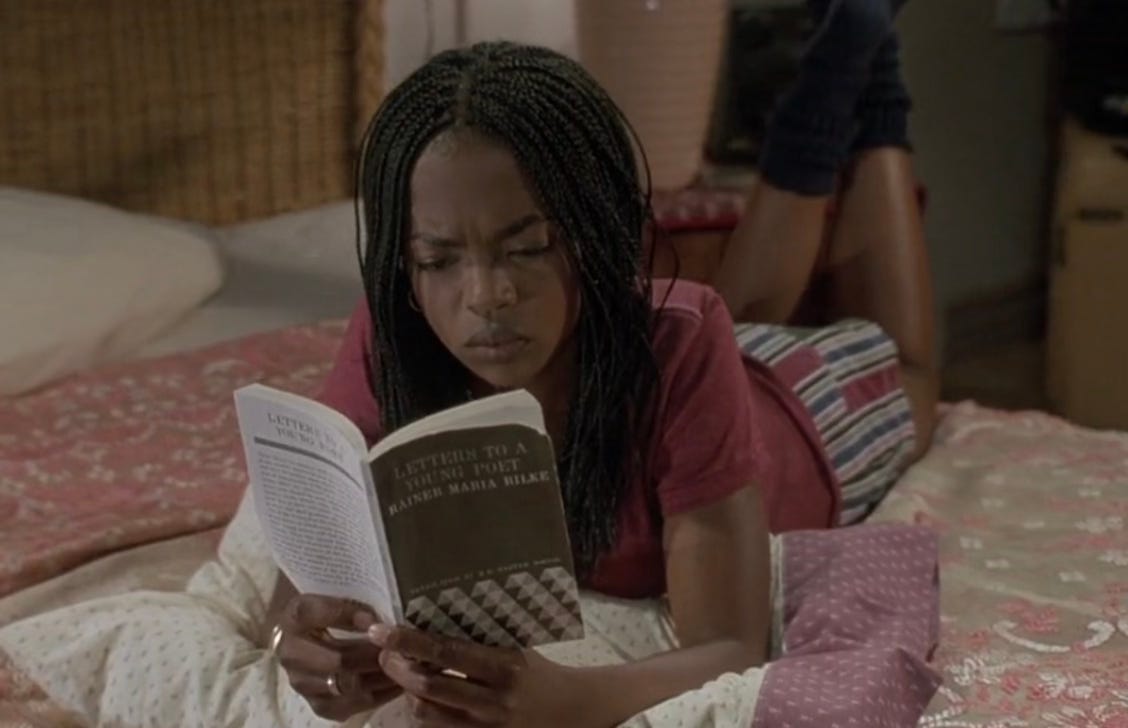
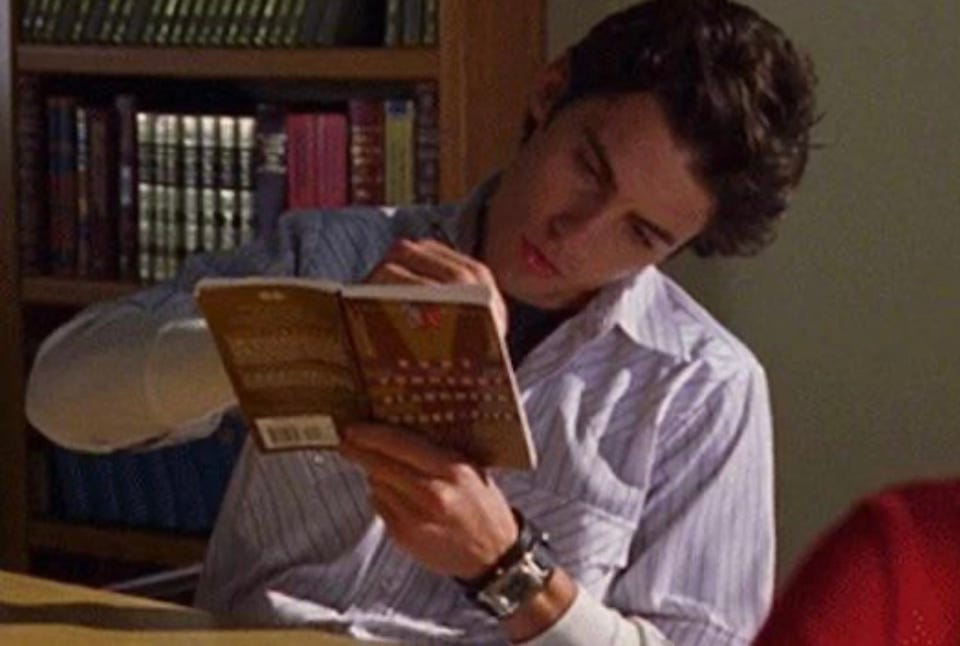
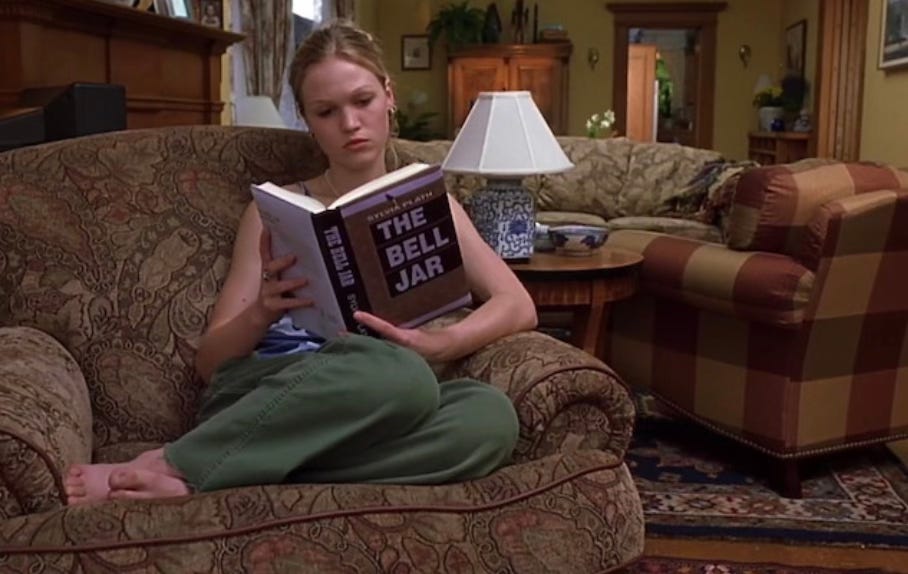

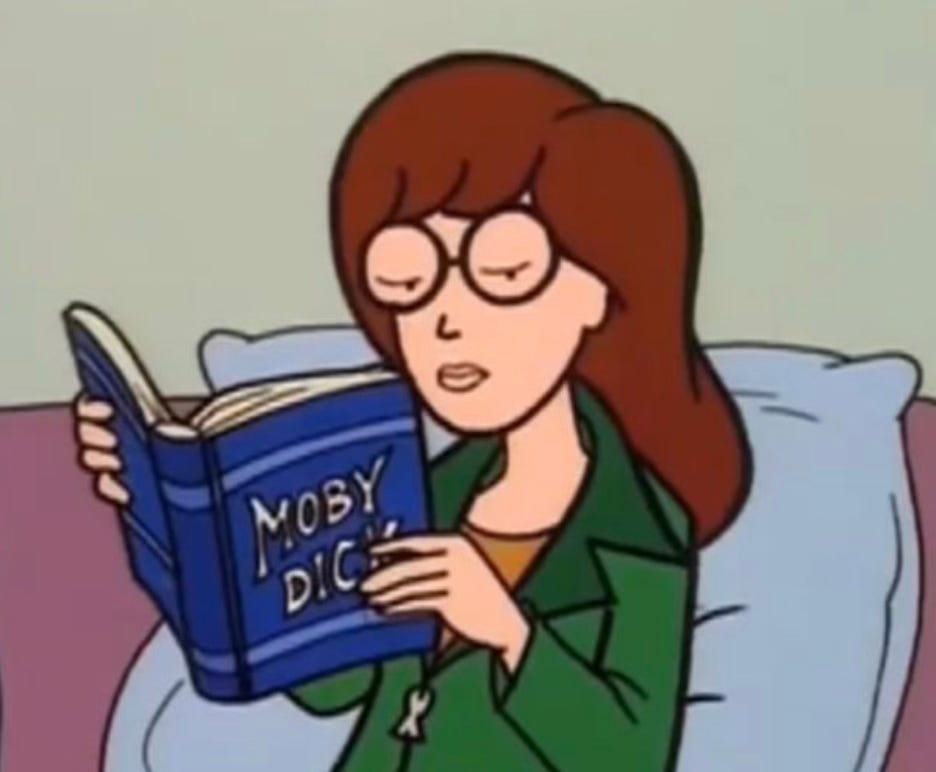
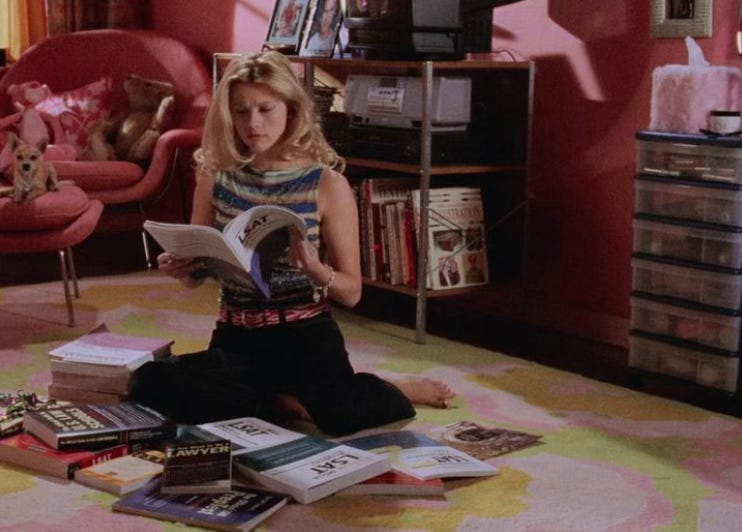
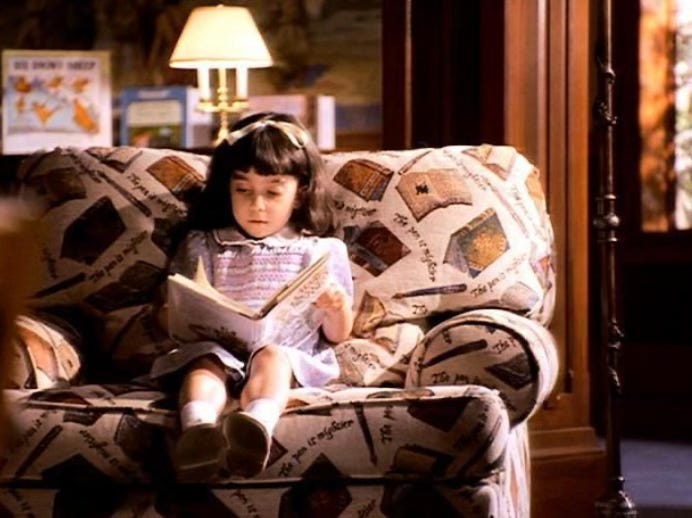
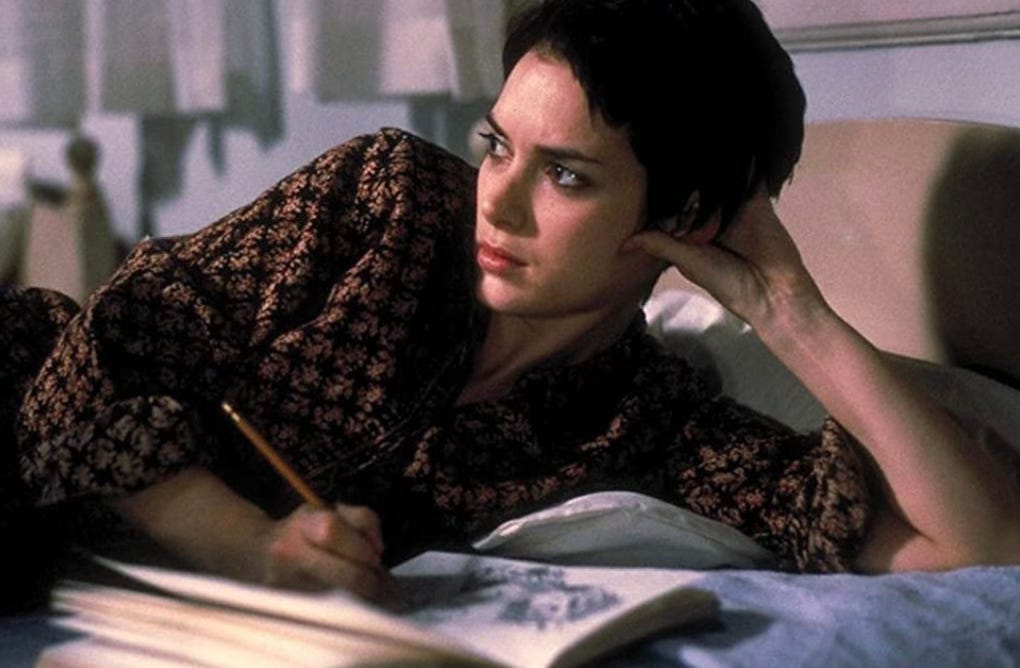
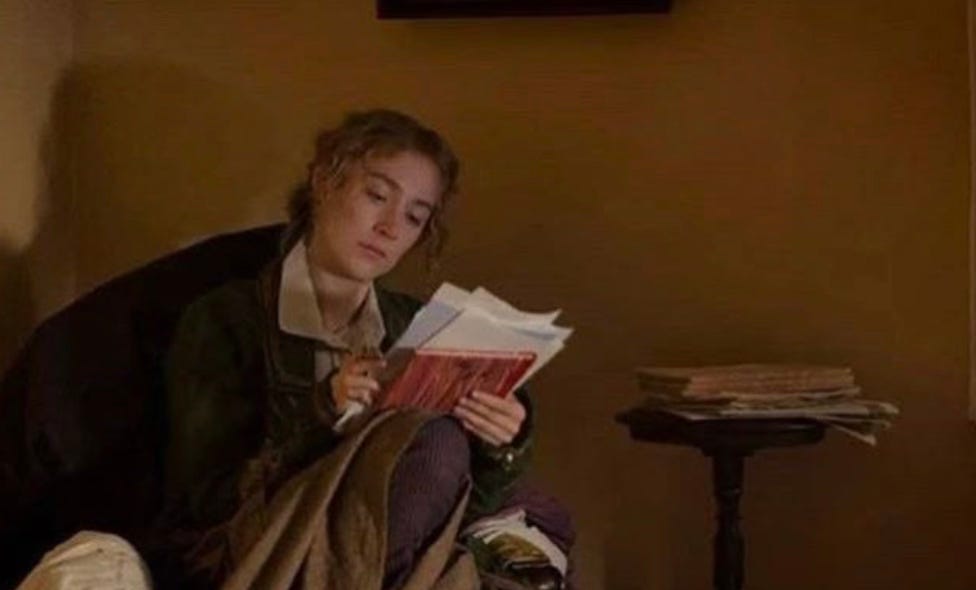
Oh this makes me wonder if Middlemarch opened you to this rumination. You surely describe Casaubon - one project defines his whole life, using re-reading (or in his case re-organizing) as an excuse not to make progress, as an excuse not to write and not to finish the project, staying stagnant and "cocooned". I've never experienced going too deep like this. I do identify with being restless, picking up one book and then another and not finding comfort because I'm feeling scattered. It's such a joy when suddenly something sticks and centers me again.
"It is sometimes the dreaded mirror illuminating us too closely; other times, a wide window holding only unknown vistas." Yes, books can take us beyond our front door and further into ourselves. I'm currently restless. I used to be able to slip into a book/world so easily and stay immersed for hours and days. I likely need to work on healing my attention span. The Perimonster (perimenopause) is playing a large role, but also my phone, the multitasking, the relentless input/content. Thanks for sharing! PS. Agree that East of Eden is a gem.